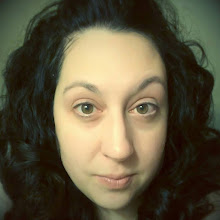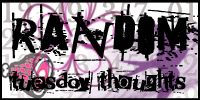
bella (femminile) agg beautiful
figlia nf daughter, child (offspring)
When I was growing up, my Nana would say, "Bella Figlia!" when I (or one of my sisters or many girl cousins) entered the room. It was years before I thought to ask what it meant, and always knowing that it was an endearment, was not too surprised when Nana said that it translated as 'beautiful daughter'. (I had always assumed that it meant something like 'beautiful face', I don't know why, for years my sister and I also confused the terms 'basta!'-enough! and 'pasta fazule'-pasta with beans, shouting, "Basta fazule!" whenever we wanted the other to knock something off. Now I look up the italian word for bean, and it's "fagiˡolo", who knew? It doesn't matter, we will continue to tell each other "enough beans!") Our bastardization of the mother tongue notwithstanding, naturally when my own daughter came along, she was dubbed, "Bella Figlia!" as well as "Bambina" ("Bambi" or "Bina" for short). So, this blog will be about my daughter, who introduced me to motherhood, the two little boys that came after her, my husband and of course myself. My Nana's Bella Figlia.
In checking the spelling for "figlia" online, I was surprised to find that there is an aria in Verdi's opera, Rigoletto called "Bella figlia dell'amore":
Bella figlia dell'amore,
Schiavo son dei vezzi tuoi;Con un detto sol tu puoi
Le mie pene consolar.
Vieni e senti del mio core
Il frequente palpitar.
(Translated)
Beautiful daughter of love,
I'm a slave of your habits;
With only a word you are able to console
my sadness.
Come and listen to the frequent beats of my heart.
I had always assumed that my Nana, like me, was passing on something that she had heard as a child. It wasn't until learning about the aria that it occurred to me that she'd learned it in a song, which she would've known, because she was an opera singer. (My Nana, Josephine Busalacchi became the first Metropolitan Opera Auditions regional winner from Wisconsin in 1957. She won the Chicagoland Music Festival, singing before 100,000 people at Soldier's Field. After making her local debut in the Florentine Opera Company's production of Verdi's "Il Trovatore" at the Pabst Theater, she toured nationally with Boris Goldovsky's company, singing opposite Sherrill Milnes in "Tosca." She even sang on the Ed Sullivan Show. In 1965, she founded the Milwaukee Opera Company with my grandfather, Richard Rottman, and her brother, my great-uncle Nino. The company ran for 30 years, at which time she was diagnosed with Alzheimer's disease.)
Amazing. I had no idea that this phrase could reveal a little glimpse into my Nana's life, like another little gift hidden for me now that she's gone. Maybe my words will stay, too. Maybe as I find myself on these pages, I will leave behind something for my children to hold onto when I am no longer here to hold them.









.JPG)

